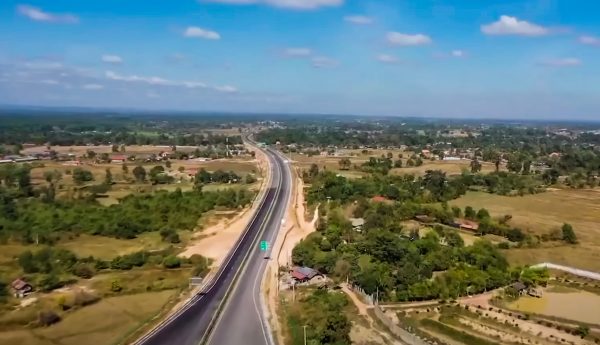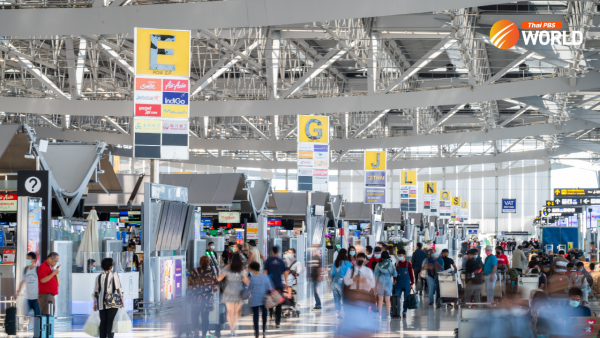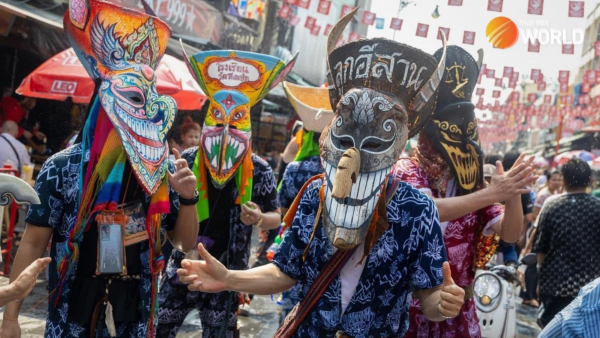Thailand’s vicious dilemma: to lockdown or not to lockdown

Thailand is caught in a dilemma – impose a national lockdown to contain COVID-19 quickly and effectively, or keep the economy going despite the surge in cases.
Amid record rises in COVID-19 infections, the government has so far refrained from imposing a total shutdown over fear of overwhelming financial burdens on business and mass economic casualties.
The Thai stock index soared by 18.89 points on Monday after fears of a nationwide clampdown evaporated. Investors’ mood was brighter than on the last trading day of 2020, when the stock market fell over concerns a lockdown would bring the economy to a halt.
This time Prime Minister General Prayut Chan-o-cha has only put five provinces under lock down, namely Samut Sakhon, Chon Buri, Rayong, Chanthaburi and Trat. The remaining 23 “red” provinces, including Bangkok, face just eight control measures.
As of Monday, schools, pubs and bars in the provinces are closed. Businesses have been asked to promote work-from-home practices while governors of the provinces have been handed authority to take action as they deem appropriate.

The governor of Samut Sakhon, “ground zero” of the latest outbreak, is in hospital after he and his wife contracted COVID-19.
Meanwhile, Dr Taweesilp Visanuyothin, spokesman for the Centre for COVID-19 Situation Administration (CCSA), said last week that the government has held off on imposing a nationwide lockdown due to concern for the economy.
Restaurants will be allowed to remain open and serve diners in a bid to keep workers employed, so the government does not have to compensate those who are laid off.
“Remedial measures needed for those hit by a lockdown would weigh heavily on taxpayers,” Taweeslip said.
Saving the economy?
Prof Dr Thiravat Hemachudha, who heads Chulalongkorn University’s (CU) Centre for Emerging Infectious Diseases, said recently that declaring a lockdown was easy, but the economic cost was too high.
Many businesses would agree with that judgment.
The owner of a Bangkok shabu restaurant said she is still struggling with debts from the last lockdown, and a fresh lockdown would doom her business. Shabu restaurants rely heavily on dine-in trade, which would be halted by a lockdown.

The Thai Restaurants Association said if restaurant dining was banned again, the economic damage across the entire supply chain would rise to more than Bt100 billion.
The Thai Chamber of Commerce forecasts that if the new wave of COVID-19 is not brought under control within a month, the economy will lose between Bt1.5 billion and Bt2 billion per day.
The new outbreak emerged in Samut Sakhon province in the middle of December. Almost a month later, Thailand saw a daily record of 745 new Covid–19 cases on Monday (Jan 4), offering no hope that the situation can be brought under control any time soon.
Between December 15 and January 4, more than 4,000 new cases have been detected, most of them locally transmitted with Myanmar migrant workers accounting for the largest number of infections.

Public health at risk?
Assoc Prof Thira Woratanarat, a lecturer at the CU’s Faculty of Medicine, believes the government may not implement strong measures this time around because restaurants have been allowed to remain open for dine-in services despite being a known hotspot for infections.
“I think a regional lockdown would be effective in this situation but it hasn’t been introduced,” he said. “Also, I think people are not cooperating as much as they did last year.”
If the new government measures work well, then clear results should be visible by March, he said. However, if the measures are ignored, Thailand may face the same huge surge in COVID-19 cases suffered by Japan when its economy was prioritised.
Thira also said Thailand has been conducting far fewer COVID-19 tests than many other countries.
“Our capacity is 25,000 tests a day. But at such level of outbreak, I think the daily capacity should be 100,000 tests,” the lecturer said.
Sharing responsibility, voluntary lockdown
Both Prayut and Taweesilp have called on the public to share the responsibility for battling the spread of COVID-19.
The PM said people should practice self-isolation where possible for 14 to 15 days to reduce the risk of getting infected. With fewer people out in public, it will be easier for authorities to screen those at risk and effectively control the outbreak, he added.
“If everyone takes this advice, we will all be safer. If we continue going out, how will we be able to check all 70 million people in Thailand?” he asked.
Taweesilp agreed, saying a lockdown would not be necessary if every individual cooperated and contributed to COVID-19 control efforts.
Response to COVID-19 outbreak
Top virologist Dr Yong Poovorawan, also from CU, offered the same advice to stay home as much as possible, and to wear a mask and wash hands frequently if people did leave the house.
“Maintain a two-metre distance from others when outside,” he said.

Yong, who is in isolation after coming into close contact with the Samut Sakhon governor, warned that control measures would tighten if the situation worsens.
“The strongest measure will see a complete lockdown, as in China’s Wuhan province,” he said.
By Thai PBS World’s General Desk






